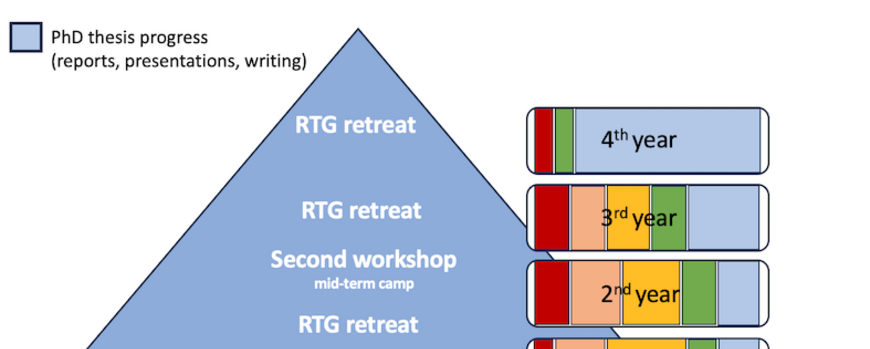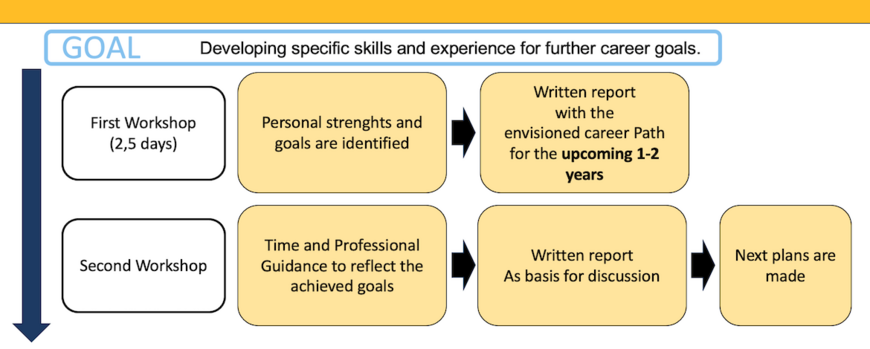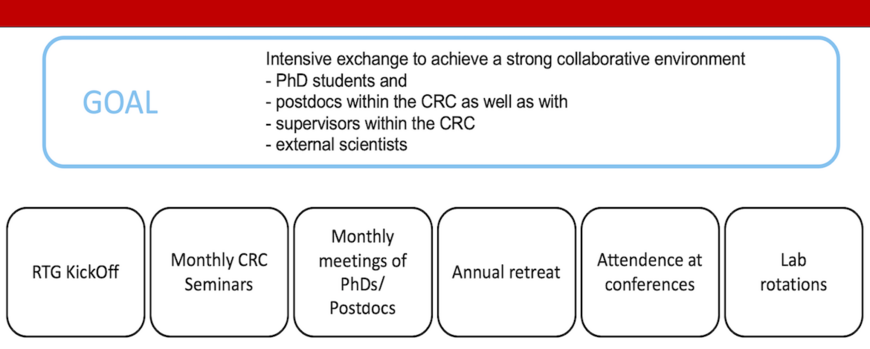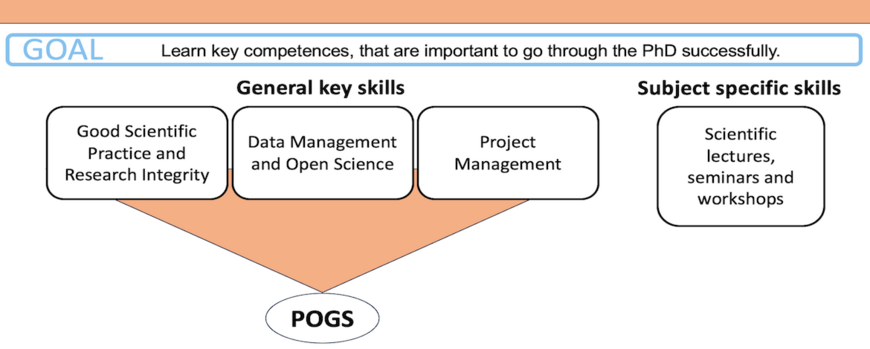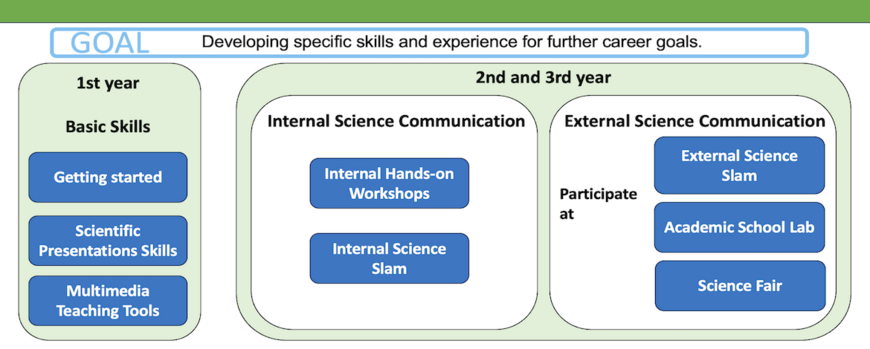About the IRTG
The Integrated Research Training Group (IRTG) of the CRC deals with the training of the softskills of the PhDs and Postdocs.
Moreover, it is a group that only includes the PhDs and Postdocs of the CRC which makes it a place where questions can be discussed in a safe space and knowledge can be exchanged between the young researchers.
The CRC is interdisciplinary and offers the opportunity for excellent research for everybody.
But besides that, the you researchers is offered a broad programme to foster their personal development regarding their further career.
This is guaranteed due to a curriculum with different modules that include optional and mandatory workshops and events over the 4 years of doing a PhD.
Every year is structured by the different amount of effort that each module requires (in figure: colorful boxes, each color stands for a different module).
Moreover, there are mandatory events of the whole CRC and different ones of the whole IRTG (in the figure: within in the blue triangle).
The frame of the whole idea of the Curriculum is made of a workshop in the very first year (in figure: Individual Training and Development) where the PhDs identify their personal plans, visions and dreams concerning their future career and record it in a document. This document will be the basis for a second workshop after 1,5-2 years to discuss their achieved goals.
Individual Training and Development
The module Individual Training and Development frames the PhD.
In the beginning the PhD students get a first workshop on "Individual Training and Development" where they can check their non technical abilities: on the one hand personal strenghts are identified and on the other hand personal goals are discussed. Afterwards they need to write down a report about what they found out about themselves - which skills do they want to improve within the next 1,5-2 years?
After approximately 2 years the PhD students will reflect whether they achieved the goals of their written report within a second workshop on "Individual Training and Development".
Interdisciplinary Knowledge and Exchange
The module Interdisciplinary Knowledge and Exchange provides the opportunity to interact between the different work groups and disciplines of the CRC.
Due to an organized structure with monthly meetings and seminars as well as annual retreats and lab rotations the PhD students can come together as a group and exchange their current ideas.
Scientific Key Skills
The module Scientific Key Skills has two different goals:
It supplements the module Interdisciplinary Knowledge and Exchange by scientific lectures, seminars and workshops that are meant to broaden the knowledge of the PhD students in the areas of physics and chemistry.
Moreover, it trains the general key skills by different courses on e.g. Good Scientific Practice or Research Data Management. These courses are planned and carried out in cooperation with the Potsdam Graduate School (PoGS).
Science Communication
Science Communication is getting more and more important for scientists.
In the first year this module provides the PhD students with the basic skills to do Science Communication.
In the second and the third year they are going to be a user of their learned skills. There will be possibilities to show their learned skills within the CRC (e.g. in Internal Science Slams) but also outside the CRC within the scope of academic school labs etc.

